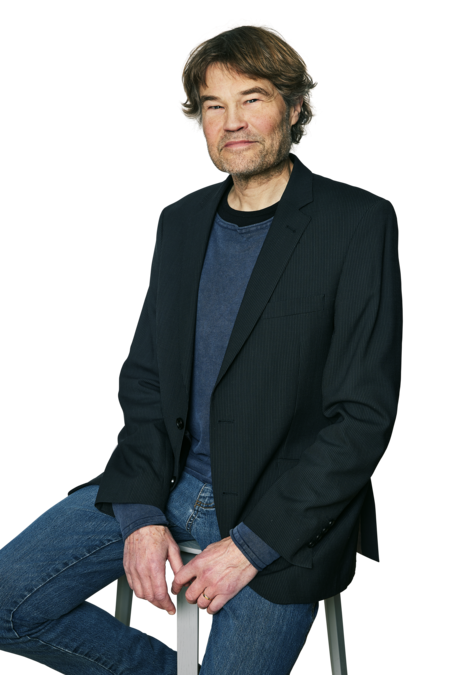From sentient bio-machines to ecological ethics – seven humanities projects awarded grants

A core group is a closely collaborating research team typically consisting of one or two tenured senior researchers as project leaders, e.g. a number of senior researchers, together with 2–3 postdocs and/or PhD students.
A core group can consist of researchers from the same department or researchers across departments and universities.
Read more about VELUX FONDEN’s core-group programme
This year, VELUX FONDEN’s core group programme is granting DKK 40 million to a wide range of research topics at the IT University of Copenhagen, the University of Copenhagen, the University of Southern Denmark and Roskilde University.
With its core-group programme, VELUX FONDEN has focused on supporting basic research in the humanities since 2008, in dialogue and collaboration with university departments. A robust democracy requires both new research-based knowledge about people, culture and society at the highest academic level, and strong institutions as a framework for developing this knowledge. Henrik Tronier, head of programme for VELUX FONDEN’s humanities discipline explains:
‘Collaboration and transparent processes between universities and foundations is more important than ever. This year’s grants are the result of a process that began with invitations to university departments to select a number of projects that are both academically strong and can support the department’s own plans for research, education and career development. The selection process continues at the foundation, where we send the applications for individual assessment by international experts. We grant the highest-rated applications on this combined basis. In this way, we hope to realise both purposes of the programme.’
For the project ‘Bio-Maskinernes Æstetik og Spørgsmålet om Liv’ (The Aesthetics of Bio-machines and the Question of Life), the grant will be used to shed light on how we can rethink the status of the machine and explore new concepts of what it means to be alive.
‘Physicists, engineers and biologists talk about “Life 3.0” in the context of self-learning and artificial intelligence. From a humanistic and aesthetic perspective, we want to conceptualise digital technologies that simulate life, like sentient bio-machines. We argue that the qualities that make them resemble biological life ought to be understood by an examination of the way they imitate the ability of biological life to sense the outside world. We are therefore examining these “life forms” from an aesthetic point of view, focusing on the ability of technologies to sense the world and the way they are portrayed and discussed in literature, art and film. The aim is to increase our knowledge of what it means to be alive,’ says professor Kathrin Maurer from the Department of Language, Culture, History and Communication at the University of Southern Denmark.
The seven projects:TRAnsformations in CarE (TRACE) delivers new in-depth and critical knowledge about the rapid and profound transformations that our health and social care sectors are undergoing as effects of recent years’ digitalization. Today, care is increasingly being re-delegated and distributed through digital systems and devices implemented in our bodies, homes, and communities. However, this development is often propelled by technological advance and austerity politics, and thus lacking the necessary critical and qualitative oversight. This leaves us with a poor understanding of human-technology interactions in care and how they radically transform care relations between care-receivers, relatives and care-givers. TRACE contributes with a humanistic foundation for understanding the material, affective and ethical implications of digitalization as it unfolds in current and future care practices.
Despite Denmark's reputation as an enlightened, egalitarian society, recent research and reports cast doubt on the extent to which this applies to sexual health. Knowledge, attitudes and behavior are reflected in and shaped by communication. Therefore, this project addresses ignorance and inequality in relation to sexual health in Denmark from a communication perspective. Using a systematic method for analysing language, images, video, etc. we examine information materials, websites and social media to understand how organisations, health communication professionals and ordinary Danes communicate about sex, gender, diversity, contraception, STIs, consent and menopause. The project thus aims to create a basis for clear communication that can promote knowledge and break down taboos and barriers to equality in sexual health in Denmark.
In a collaboration between theologians and anthropologists, the project proposes a lived ecological ethics by exploring contemporary dilemmas between human interests and nature's “own voices”. To this end, the project develops an overarching model that articulates both contrasts and connections between three ecologies: (1) Nature understood as raw, wild and potentially enchanted (ecology1). The corresponding ethical task is to withdraw and allow space to nature. (2) The care for nature through stewardship and intervention (ecology2). The ethical task would be to develop technologies that contribute to solving climate crises. (3) Nature as the encompassing reality with which human beings are intertwined in nature-cultures (ecology3); the task here is to understand humans in solidarity with the planet's other life forms. The guiding hypothesis of CARNAL is that the three aspects of Ecology-1-2-3 intersect while often operating in tension with one another. The project explores three interlaced themes: 'Body' is about the interaction between humans and animals. Specifically, we examine the ethical debates in Denmark concerning the introduction of rewilded animals and human relationships to domestic animals. From a consumer perspective, we examine ‘ Meat’ in its production-and-consumption chain from farm to forks. We focus on the relationship between red and green meat, both in the supermarket and among young people attending folk high schools. Finally, we examine the solidarity of the shared materiality of life (‘Flesh’) as a theological theme, which is simultaneously unfolded in the form of a resonance-based ethics.
We live in a time of many crises, which all create urgent needs for help. As we saw in the refugee crisis in the summer of 2015 and during the COVID-19 pandemic, the state and civil society's established organizations are not always able to handle the acute needs for help when the crisis hits. In many of these crises, informal groups of citizens have therefore mobilized help via social media (SoMe). This was the case during the Syrian refugee crisis in 2015, during the coronavirus crisis in 2020, and most recently during the Ukrainian refugee crisis in 2022, where many thousands used Facebook groups to organize and distribute aid. Much suggests that SoMe groups have become an important part of the organizational landscape when crises hit the Danish society. But we know very little about who mobilizes during different crises, how these support groups find out who and how they should help, and what relationships they have with other societal actors. The project aims to answer these questions. Questions which are important to illuminate for our future crisis management and for our understanding of how informal support works in the digital age. The project will study how deservingness criteria are used in practice to influence the view of who deserves help and who ends up getting help. The project uses a unique combination of data from social media, surveys, interviews, and news coverage from three of our time's most significant crises, the Syrian refugee crisis in 2015, the COVID19 crisis in 2020, and the Ukrainian refugee crisis in 2022.
The project explores how digital data constitute a strategic resource for the news media. Through five subprojects, the project investigates how, for example, managers, salespersons, software engineers, editors, and journalists understand and use data. In the digital age, data is a resource for business and for management, and if the news industry does not guard and utilize this resource it will lose out to platforms and technology companies. For this reason, knowledge about the use of data is important for both news organizations and for society. For in a time where poor information spreads broadly, quality journalism is a democratic necessity – and one that the reflexive use of data can help the news media deliver.
The digital transformations of social life worlds radically alter the conditions for our trust relations. Centering on four case studies, DIS-TRUST investigates how conditions for interpersonal trust and trust in institutions change in the digital society, how new trust relations are formed, and what challenges digitalization poses to trust relations. DIS-TRUST confronts philosophy’s conceptual work with concrete context embedded case studies. In this manner DIS-TRUST initiates a necessary methodological innovation by grounding the philosophical concept analysis in robust qualitative empirical research inspired by the tradition of media studies. Consequently, DIS-TRUST persistently advances and matures its analyses of trust oscillating within the poles of qualitative empirical research and philosophical conceptual theories. The research results will inform organizations, public policy, and decision-making that focus on the effects of digitalization on our life world.
Today we are immersed in life-like digital technologies, such as virtual assistants, generative computer systems, and adaptive robots. While physicists, engineers, and biologists are speaking about a notion of “life 3.0”, which declares life status to self-learning artificial intelligence, our humanities based core group will conceptualize life-simulating digital technologies as sensing bio machines in so far as we argue that their life-like qualities should be understood through the ways in which they perform a techno-mimesis of the sensory capabilities of biological life. We investigate these “lifeforms” from an aesthetic angle, focusing on understanding the sensory capabilities of these technologies and the way they are negotiated in literature, art and film in order to advance knowledge about what constitutes being alive. Considering the current planetary crisis (climate change, warfare, inequality), the search for new, integrative, and diverse concepts of life that rethink the status of machines is more than a philosophical task but an ethical responsibility.
